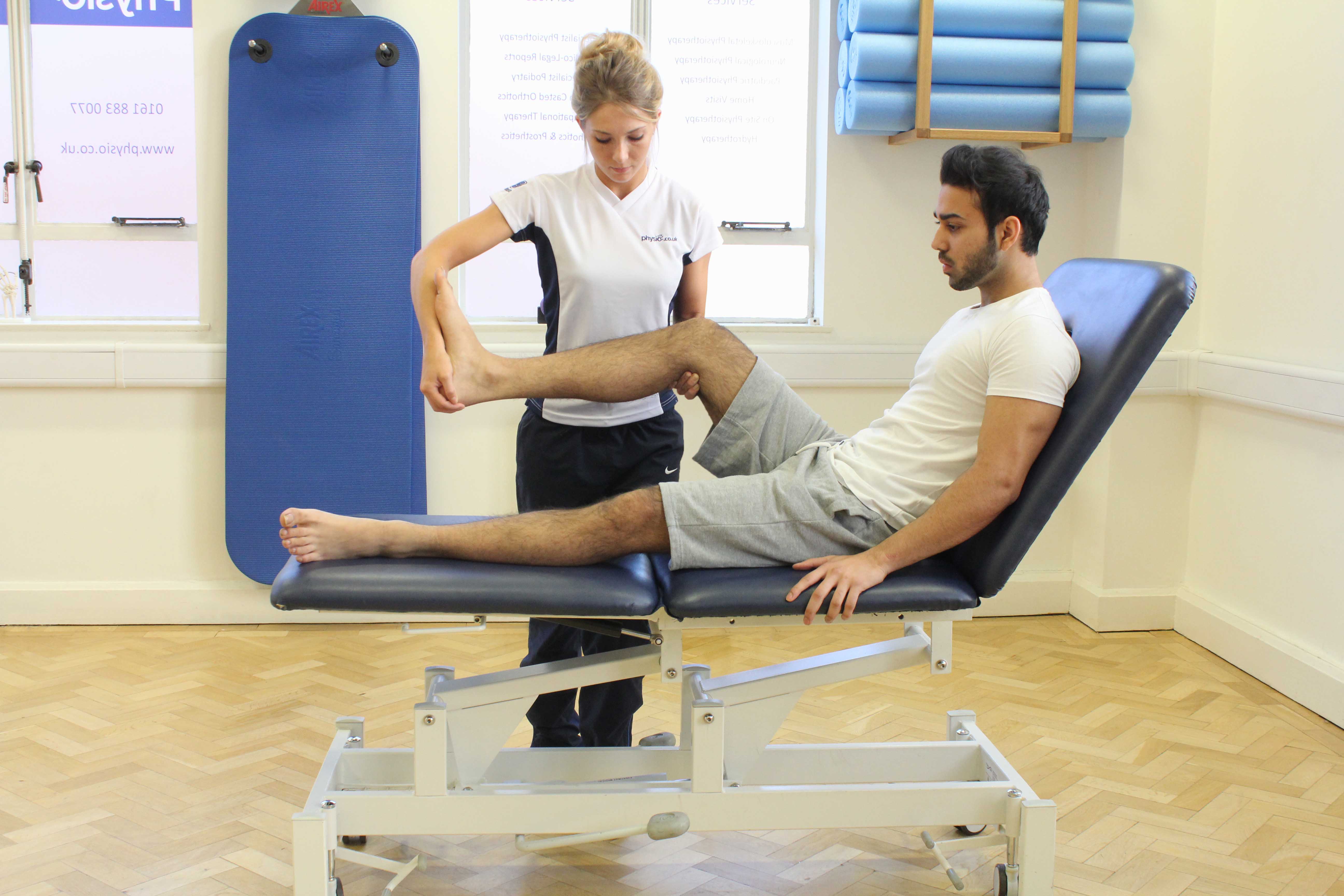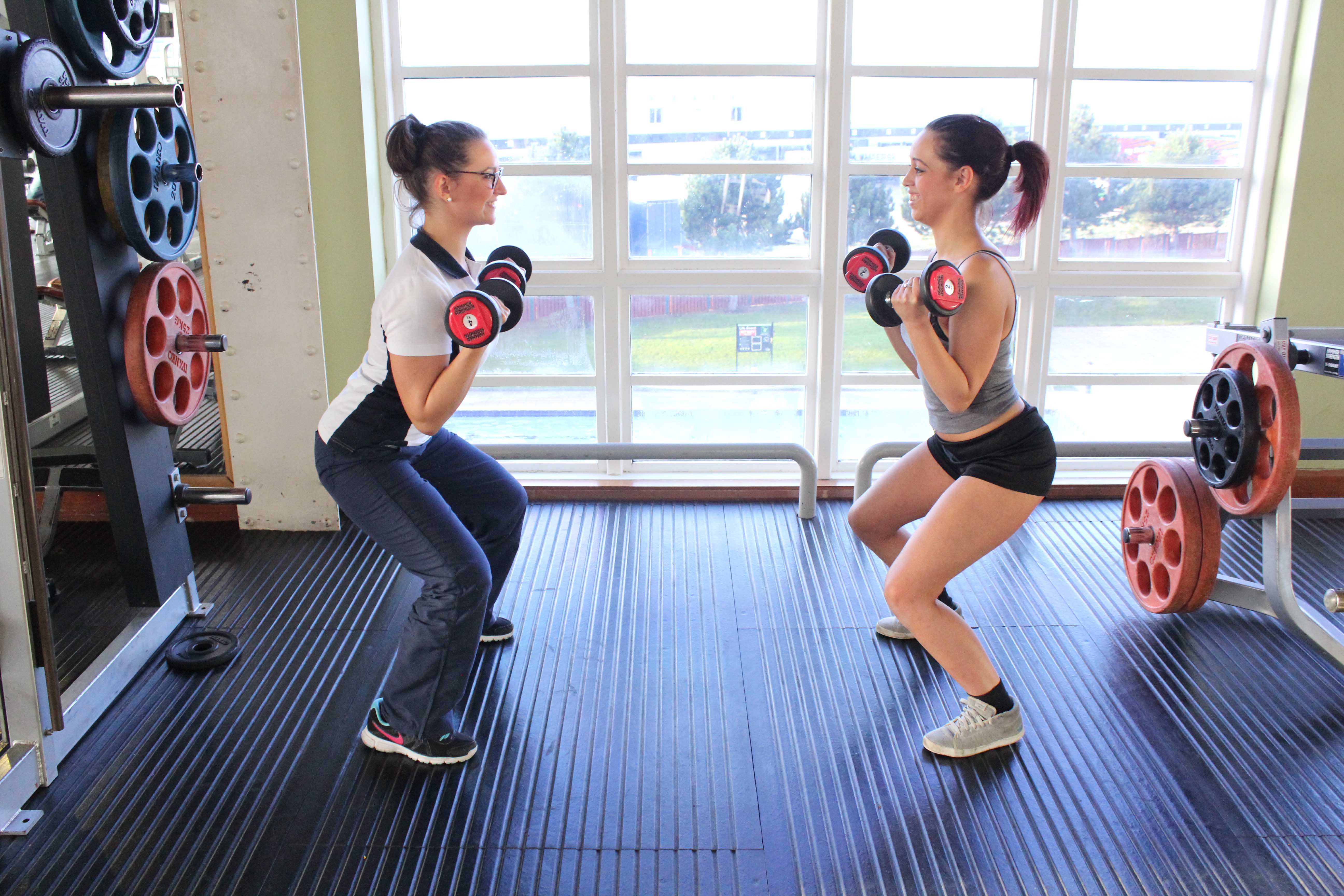What is anterior knee pain?
Anterior knee pain, also known as patellofemoral malt racking, patellofemoral syndrome and chondromalacia, is characterised by pain around the kneecap. The pain arises from the joint between the kneecap and the thigh bone. Physiotherapy can resolve the symptoms of anterior knee pain.
How does anterior knee pain happen?
Anterior knee pain is commonly caused by an imbalance of the muscles around the knee joint. This imbalance can cause irritation on the underside of the kneecap. This leads to pain and sometimes swelling. Above: Therapist performing knee assessment
Above: Therapist performing knee assessmentWhat are the symptoms of anterior knee pain?
The main symptom associated with anterior knee pain is pain behind and around the kneecap. Pain is commonly worsened by activity, such as walking, running, descending stairs or sitting for a prolonged period with a bent knee. You may also experience grinding noises as you bend or straighten your knee, a sensation of the knee ‘giving way’ and weakness in the knee. Other symptoms include:
What should I do if I have anterior knee pain?
Anterior knee pain rarely gets better without treatment. If you suspect that you have anterior knee pain then you should arrange an initial physiotherapy assessment as soon as possible. In the meantime you should avoid activities that aggravate your pain and ice the painful knee for 15–20 minutes every 1–2 hours using crushed ice or a bag of frozen peas wrapped in a damp cloth.
What shouldn’t I do if I have anterior knee pain?
If you suspect that you have anterior knee pain then you should not ignore your problem in the hope that it will go away without treatment. This may lead to your problem worsening to a point where your pain is severe and constant.
 Above: Progressive knee strengthening exercises supervised by therapist
Above: Progressive knee strengthening exercises supervised by therapistPhysiotherapy treatment for anterior knee pain.
Physiotherapy is imperative in the treatment of anterior knee pain. At the initial assessment your physiotherapist will be able to diagnose your problem and explain why it has developed. Following this your physiotherapist will develop a treatment programme. Treatment varies dependent on your symptoms but often involves a stretching and strengthening programme to stretch tight tissues and combat any muscle imbalance. Other treatments include:
Could there be any long-term effects from anterior knee pain?
In severe cases, surgery can be performed in an attempt to correct the biomechanics of the kneecap. Surgery is, however, a last resort. The majority of surgeons will not operate unless you have had a course of physiotherapy treatment.
Please call Physio.co.uk on 0330 088 7800 to arrange an appointment or book online today.

 0330 088 7800
0330 088 7800

































